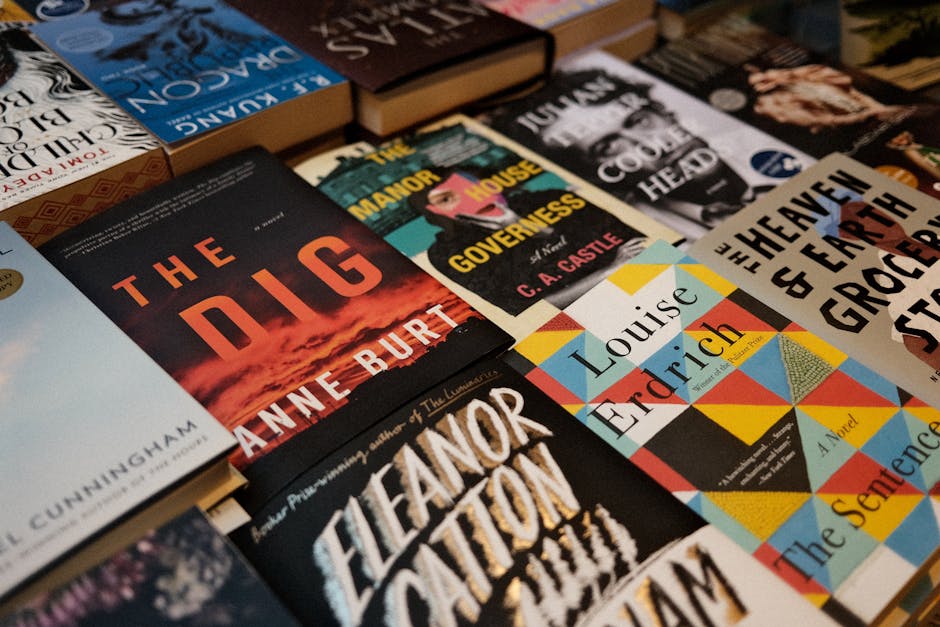The Evolution of Storytelling in New Books
Did you know that storytelling is as old as humanity itself? From ancient cave paintings to the latest bestsellers, stories have always been a part of our lives. But how has storytelling changed in modern books? Lets explore this fascinating evolution and see what it means for readers today.
What Makes Modern Storytelling Different?

Today’s storytelling blends traditional methods with modern techniques. Authors now have access to new tools and platforms that help them tell their stories in fresh ways. This shift allows for greater creativity and connection with readers.
For instance, consider the rise of graphic novels. These books combine illustrations and text, creating a unique reading experience. They often tackle complex themes, making them appealing to both kids and adults.
How Has Technology Influenced Storytelling?

Technology has changed how we create and consume stories. With e-books and audiobooks, readers can enjoy stories anytime and anywhere. Many people now listen to books during their commute or while exercising. This trend is reshaping how authors think about their manuscripts.
Moreover, online platforms allow for interactive storytelling. Readers can sometimes choose different paths in a story, making them feel more involved. This is similar to how video games let players make decisions that affect the outcome.
What Role Do Diverse Voices Play in Modern Books?

Diversity in storytelling is more important than ever. Readers want to see themselves represented in books. Authors from various backgrounds bring new perspectives and experiences to their stories.
- Books by authors of color help challenge stereotypes.
- Stories from different cultures introduce readers to new ideas.
- LGBTQ+ narratives foster understanding and acceptance.
For example, The Hate U Give by Angie Thomas highlights issues of race and identity. It connects with readers on a personal level and sparks important conversations about social justice.
Why Are Readers Seeking Authenticity?

Todays readers crave authenticity. They want stories that feel real and relatable. This trend has led authors to share their own experiences, often blurring the line between fiction and memoir.
Take the popularity of memoirs like Becoming by Michelle Obama. It offers insights into her life while inspiring countless readers. Authentic stories resonate deeply and create lasting connections.
Are Shorter Stories Gaining Popularity?
Yes! In our fast-paced world, shorter stories are becoming more popular. Readers often prefer novellas or short stories that they can finish in one sitting. This format suits busy lives, making reading more accessible.
Platforms like Wattpad and Medium have also encouraged this trend. They allow writers to share shorter works, attracting a community of readers who appreciate bite-sized storytelling.
What About the Rise of Self-Publishing?
The self-publishing revolution is changing the game for writers. Authors can now publish their work without needing a traditional publisher. This means more voices can be heard, and more stories can reach readers.
Self-published books often explore niche topics or unique genres. This diversity enriches the literary landscape, offering readers more choices.
How Do Book Clubs Influence Storytelling?
Book clubs play a significant role in shaping modern storytelling. They create communities around shared reading experiences. This has led authors and publishers to consider what resonates with readers.
Many authors now engage directly with book clubs, participating in discussions about their works. This interaction helps them understand what readers love and what they want more of.
What Themes Are Emerging in New Literature?
As society evolves, so do the themes explored in literature. Current issues like climate change, mental health, and social justice are now common in modern books.
- Climate fiction, or “cli-fi,” explores environmental challenges.
- Books focused on mental health help reduce stigma and spark conversations.
- Social justice narratives encourage activism and awareness.
These themes reflect the concerns of todays readers, making stories more relevant and impactful.
What Can We Expect in the Future of Storytelling?
The future of storytelling looks bright. As technology continues to advance, authors will find new ways to reach their audiences. Virtual reality and augmented reality may soon offer immersive storytelling experiences.
Imagine stepping into a story, interacting with characters in a virtual world! This kind of storytelling could redefine how we connect with literature.
How Can Readers Get Involved?
As a reader, you hold the power to shape the future of storytelling. Heres how you can get involved:
- Explore diverse authors and genres to expand your reading horizons.
- Join book clubs or online forums to discuss your favorite books.
- Support self-published authors by giving their works a chance.
Your choices as a reader can influence what stories get told. By supporting diverse voices and innovative formats, you help create a richer literary world.
Conclusion: Embrace the Evolution of Storytelling
The evolution of storytelling in new books reflects our changing world. As technology advances, and as we embrace diverse voices, storytelling will continue to grow and adapt. So, grab a book and dive into a new story. You never know what incredible journey awaits you!
For more insights into the world of books, check out our post on must-read recommendations.


